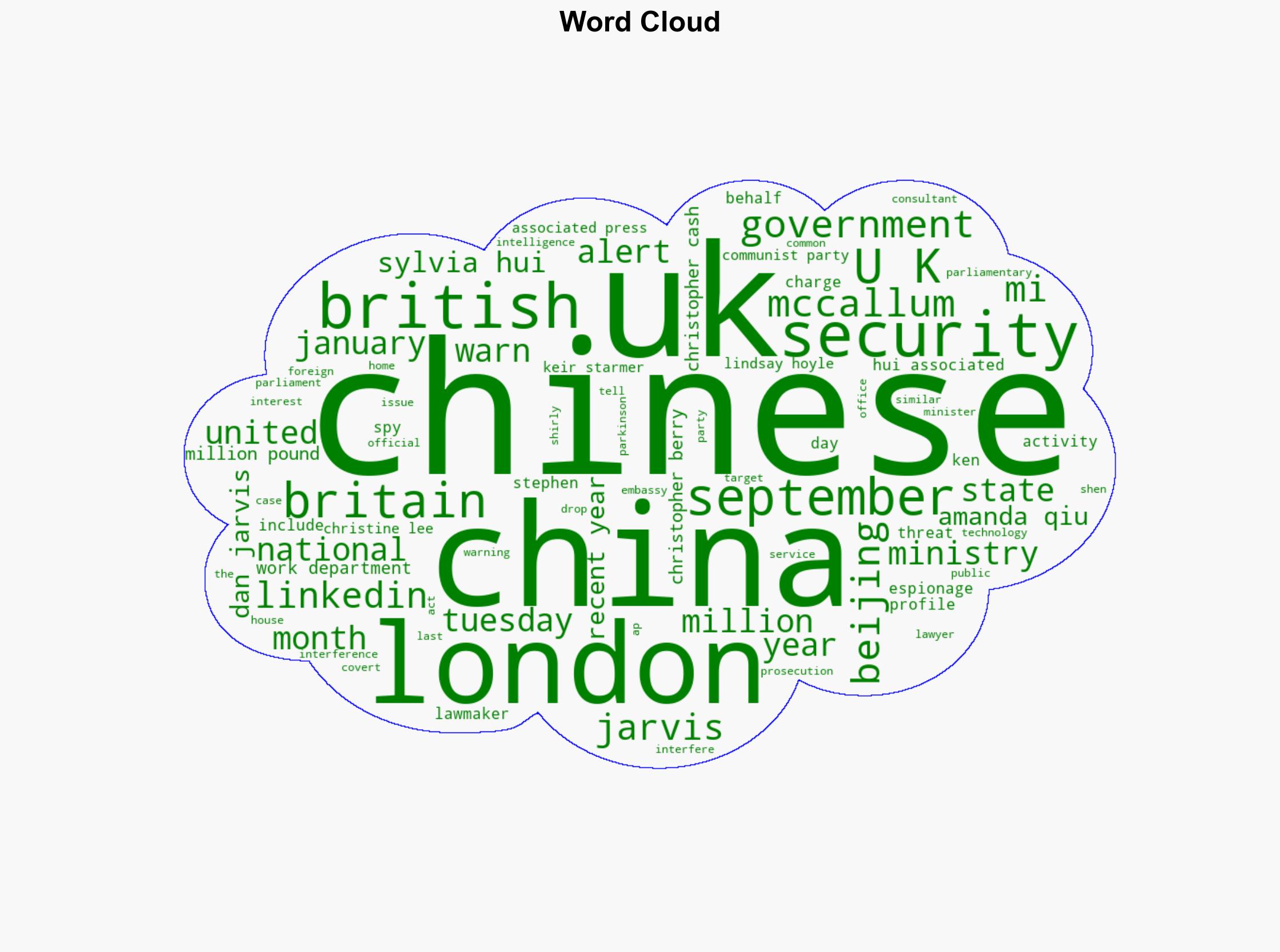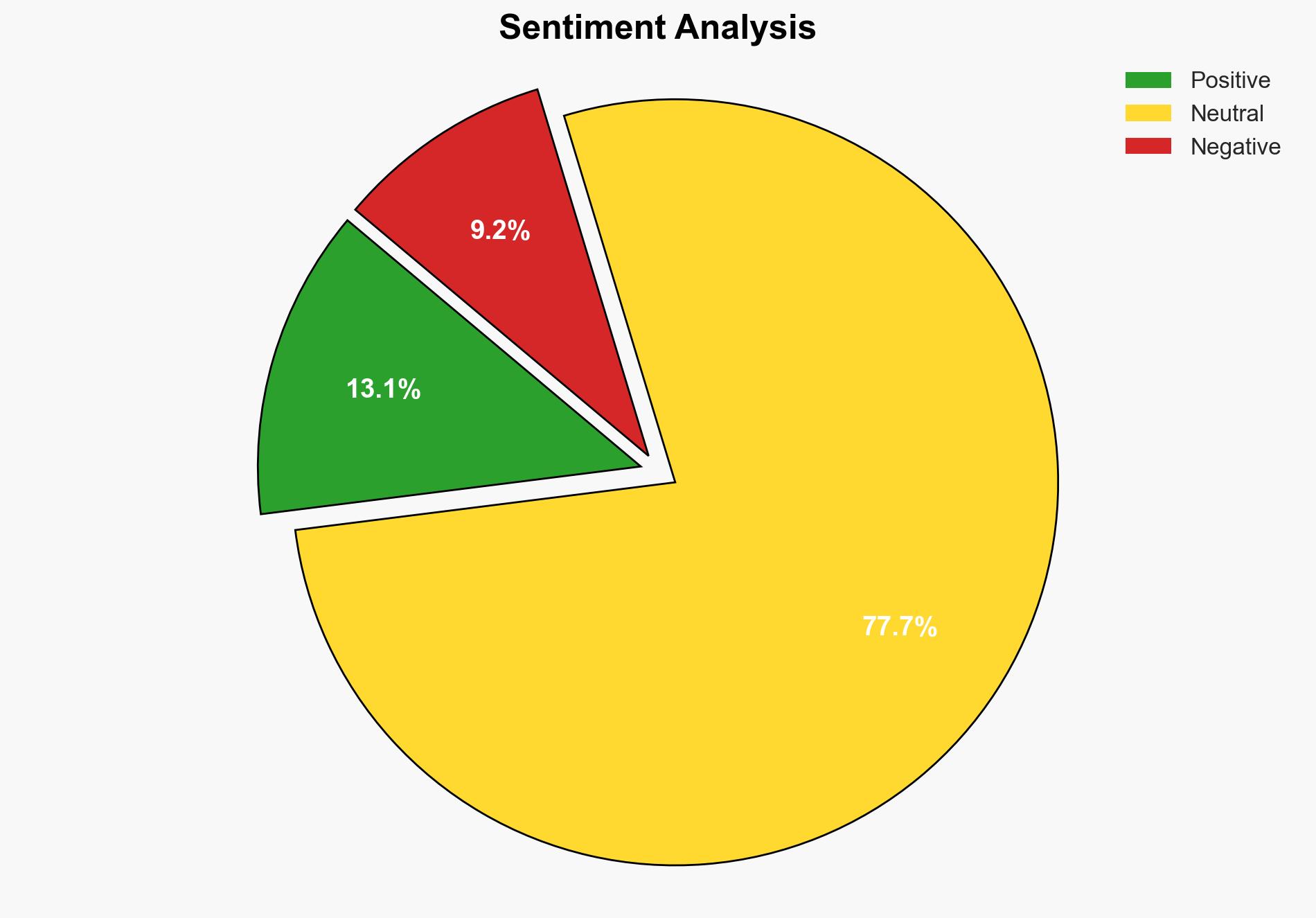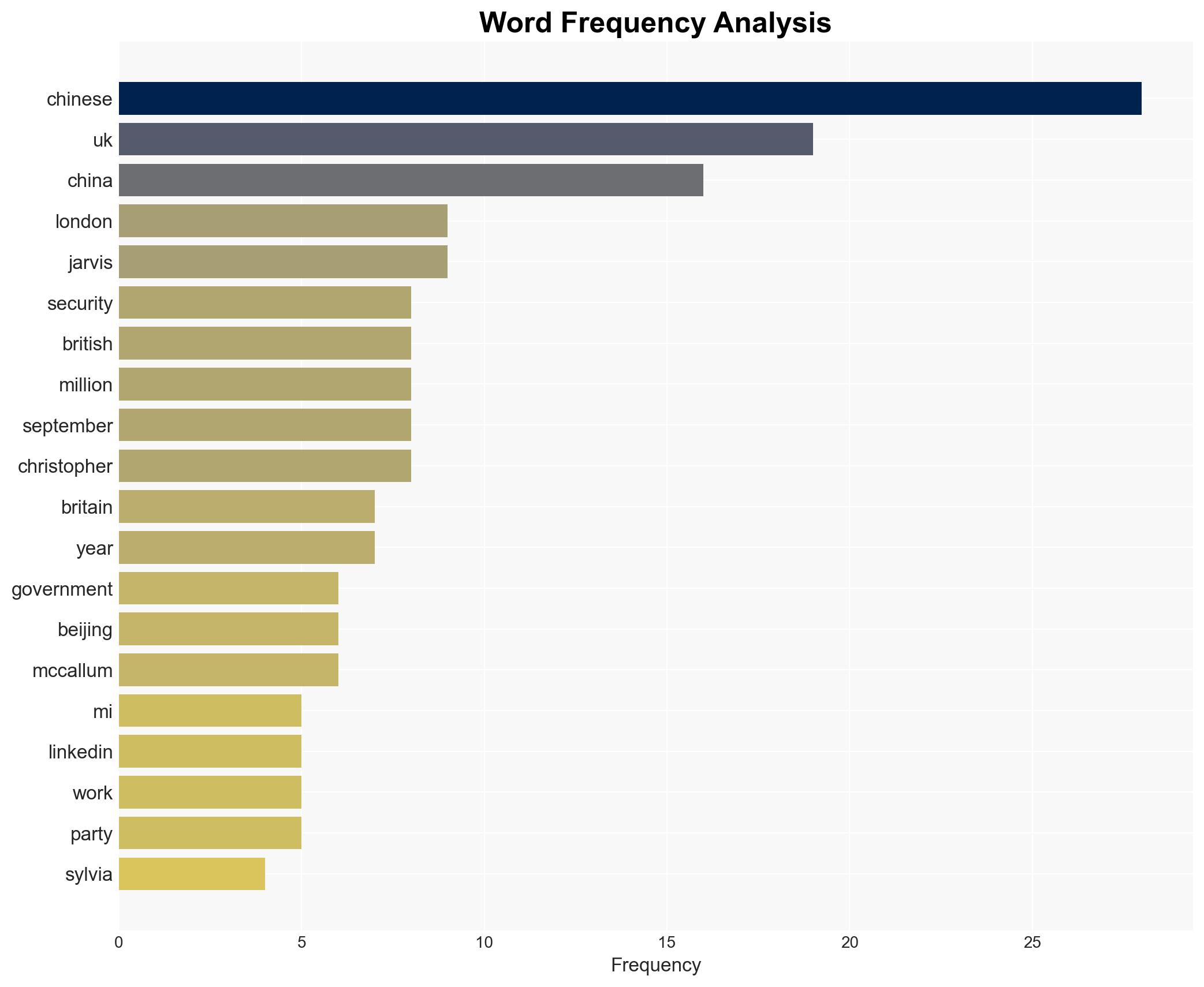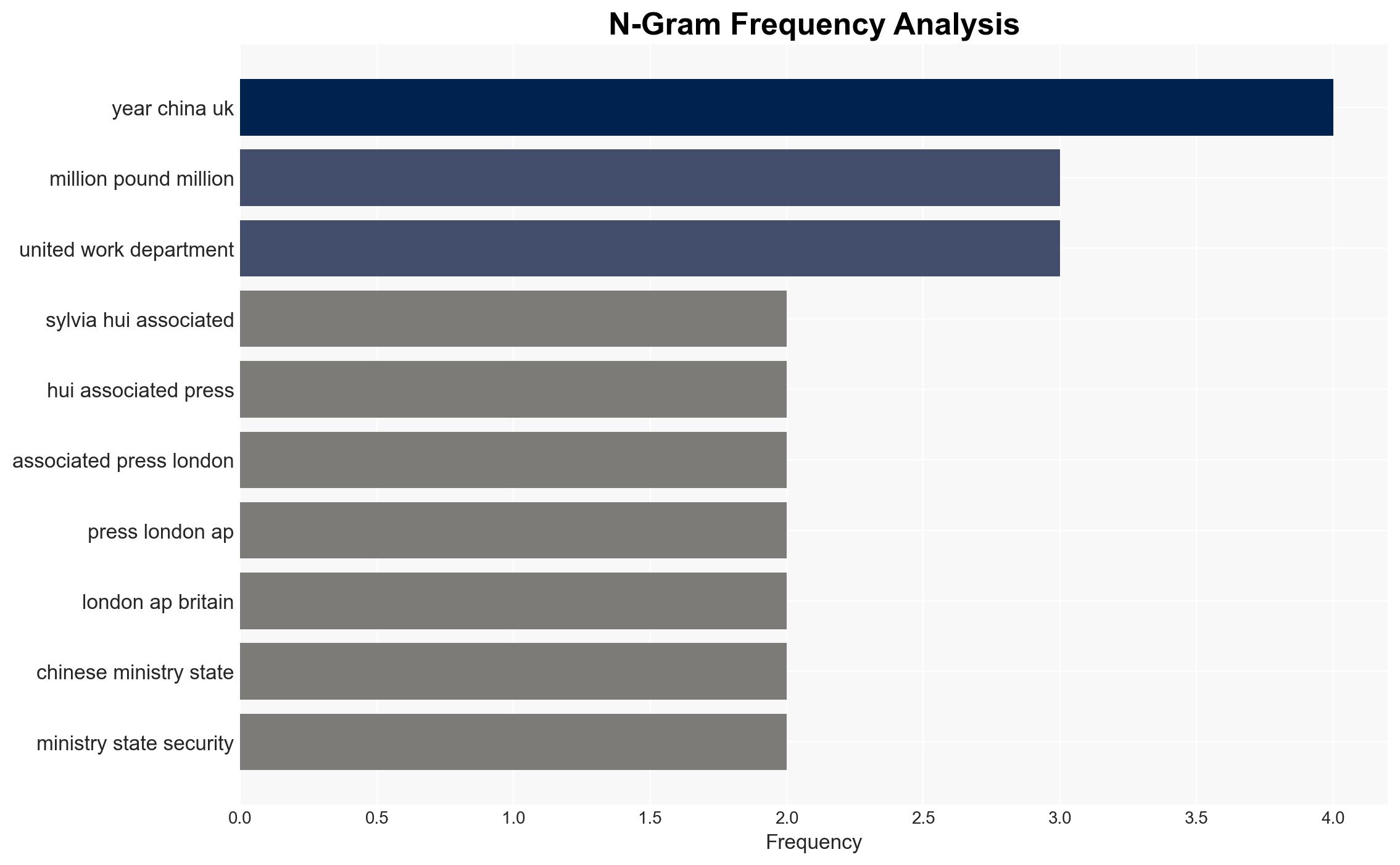MI5 warns lawmakers that Chinese spies are trying to reach them via LinkedIn – Boston Herald
Published on: 2025-11-18
AI-powered OSINT brief from verified open sources. Automated NLP signal extraction with human verification. See our Methodology and Why WorldWideWatchers.
Intelligence Report:
1. BLUF (Bottom Line Up Front)
There is a high confidence level that Chinese intelligence operatives are actively attempting to infiltrate UK political and governmental circles through professional networking platforms like LinkedIn. The most supported hypothesis is that these activities are part of a broader strategy by China to exert influence and gather intelligence within the UK. Recommended actions include enhancing cybersecurity measures, increasing awareness and training for potential targets, and diplomatic engagement with China to address these concerns.
2. Competing Hypotheses
Hypothesis 1: Chinese intelligence is using LinkedIn to target UK lawmakers and officials to gather intelligence and influence UK policy. This hypothesis is supported by MI5’s alert and historical patterns of Chinese espionage activities.
Hypothesis 2: The LinkedIn activities are part of a broader, non-targeted effort to engage with international professionals for benign purposes, such as business networking or cultural exchange. This hypothesis is less supported due to the specific targeting of UK lawmakers and the involvement of individuals linked to Chinese intelligence.
3. Key Assumptions and Red Flags
Assumptions: It is assumed that the individuals identified are indeed acting on behalf of Chinese intelligence and that the UK government has accurately identified these threats.
Red Flags: The Chinese embassy’s dismissal of the allegations as “pure fabrication” could be an attempt to deflect and downplay the situation. The collapse of previous espionage-related prosecutions may indicate challenges in substantiating claims or political considerations.
4. Implications and Strategic Risks
The infiltration attempts pose significant risks to UK national security, potentially compromising sensitive information and influencing political decisions. Escalation could lead to increased cyber espionage, economic repercussions due to strained UK-China relations, and informational warfare as both sides engage in public diplomacy battles.
5. Recommendations and Outlook
- Enhance cybersecurity protocols and training for government officials and lawmakers to recognize and report suspicious contacts.
- Engage diplomatically with China to address these concerns and seek assurances of non-interference.
- Monitor and analyze LinkedIn and other social media platforms for patterns of suspicious activity.
- Best-case scenario: Diplomatic engagement leads to a reduction in espionage activities.
- Worst-case scenario: Continued espionage efforts lead to significant intelligence breaches and deteriorating UK-China relations.
- Most-likely scenario: Ongoing espionage attempts with intermittent successes, requiring sustained counterintelligence efforts.
6. Key Individuals and Entities
Amanda Qiu, Shirly Shen, Dan Jarvis, Christopher Berry, Christopher Cash, Stephen Parkinson, Keir Starmer.
7. Thematic Tags
Structured Analytic Techniques Applied
- Cognitive Bias Stress Test: Expose and correct potential biases in assessments through red-teaming and structured challenge.
- Bayesian Scenario Modeling: Use probabilistic forecasting for conflict trajectories or escalation likelihood.
- Network Influence Mapping: Map influence relationships to assess actor impact.
- Narrative Pattern Analysis: Deconstruct and track propaganda or influence narratives.
Explore more:
National Security Threats Briefs ·
Daily Summary ·
Support us





